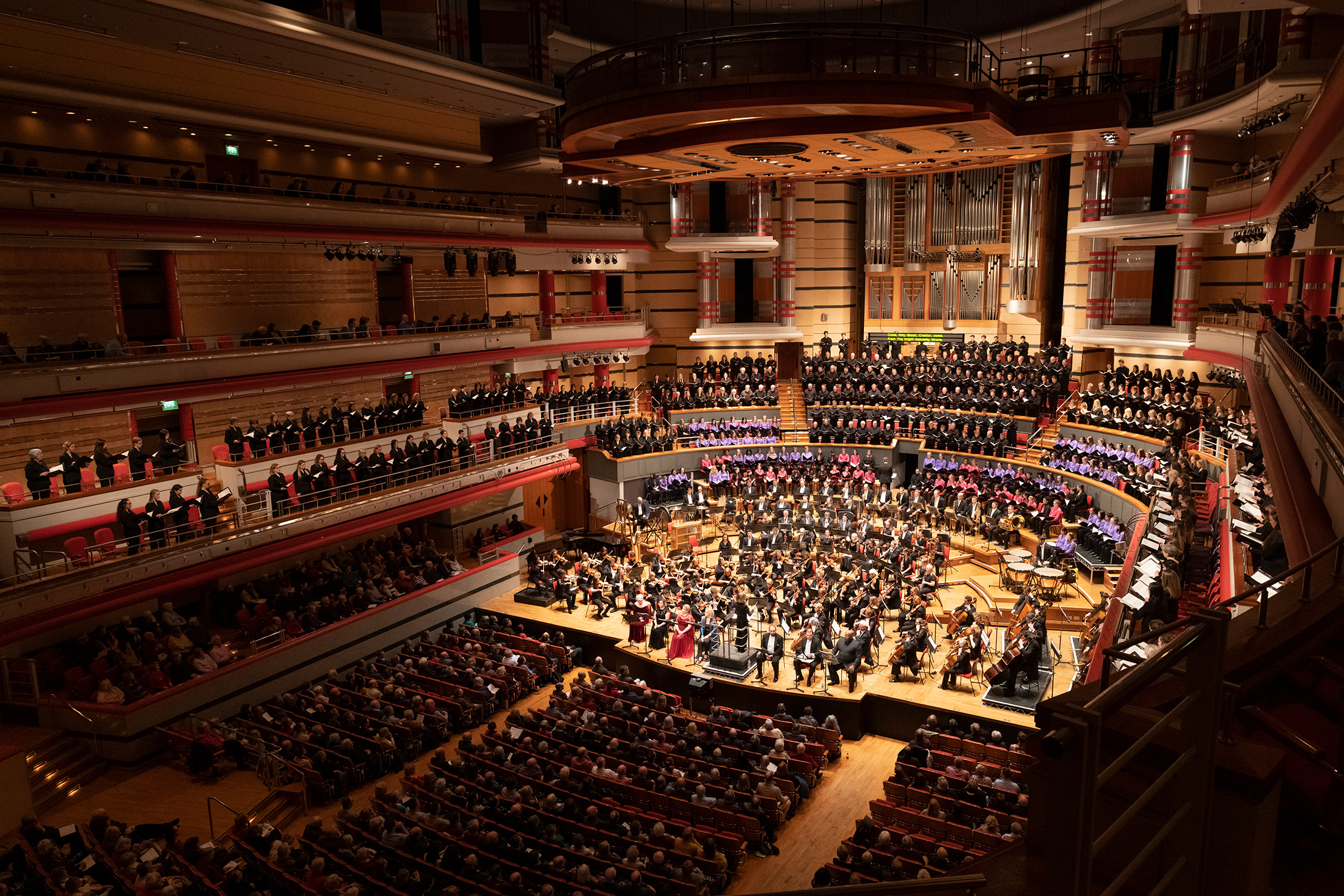Waterperry Opera has a valuable USP and deserves to go from strength to strength
Waterperry Opera Festival is underway this weekend. The four-day event based in and around the Regency grandeur of Waterperry House and Gardens in rural Oxfordshire, has built on its highly successful inaugural season in 2018 and has returned hoping its bigger festival with more works, more spaces and more days will increase its 2018 inaugural figures of just over 1000 visitors.
The site at Waterperry is no stranger to creative endeavours. The near 200 year-old mansion on the the 17th century site was from the 1930s home to Beatrice Havergal’s School of Horticulture for Ladies, and between 1971 and 2016 was home to has a history of playing host to creative endeavours.
Bought in 1830 and home to the Henley family, then by Magdalen College in 1925, it was taken over in 1932 by Beatrix Havergal who established the Waterperry School of Horticulture for Ladies, hence the considerable acreage of blooms, shrubs and tree that adorn the gardens surrounding the house. When the School closed in 1971, arts and crafts took hold in the form of the Art in Action Festival which at its height attracted 28,000 visitors, finally coming to an end in 2016.

It would be all too easy to regard the Opera Festival as just another rural summer arts event. There’s more to it than that. It has a USP which I think is quite unusual in the arts world: an air of sincerity. What’s particularly special about WOF is its energy and dynamism. That comes from the people involved in it.
I’ve been really impressed with the speed at which WOF at the hands of directors Rebecca Meltzer, Guy Withers and Bertie Baigent, has got off the ground (the original idea came about in 2017 with the inaugural festival in 2018).
Similarly, the obvious commitment to a longer-range strategy, built into an energetic plan for year-on-year development. This year has already grown from three days to four. An audience space has been erected in the grounds called ‘The Hub’, offering catering, talks, and a swiftly re-configurable performance space. The amphitheatre and ballroom are in use again this year. A range of spaces means different events. And that means more reason to stay throughout the day. That’s opera making a venue a destination for more reasons than just opera or picnicking. And with top price tickets at £40, their events are good value for money too.


What’s also clear to see spending a day there again this year is how the Festival is not only rooted in the local community, but also how its talent are eager to make their mark for the sake of the Festival too. This is a nose-to-the-grindstone kind of team effort.
The company for this years productions – Fairy Queen, Magic Flute, Mansfield Park – plus the volunteers and production bring the total on site at around 200 meaning there’s a buzzing atmosphere before things even get underway. And with performers already professionally engaged in events across the world, the quality is high. Performances in small-scale locations make sold-out performances a near certainty; the flip side for the audience is that we see the performers up close, and that means no detail can be allowed to slip.
And close proximity to a performance means something else emerges. The energy that Waterperry’s company exudes isn’t only down to the performers individual talents but also rapport. That’s no accident. Auditionees for the company are known by the well-connected team of Festival managers and production directors who have the added benefit of being one and another’s peers and contemporaries. In the orchestral world right now there’s a move to help develop musicians artistic management aspirations to change the ‘them and us’ relationship between players and administrative staff. Part of Waterperry’s success is down to a generation of artists blurring those boundaries from the start. A festival led by practitioners already making a headway in their chosen fields. A more resilient organisation model not hindered by the usual constraints, successful now.

There are other slight quirks about experiencing Waterperry behind the scenes too. The welcome by the blue clad volunteers and staff is universally and noticeably warm even on the hottest day of the year. There is a sense of genuine engagement in the experience of visitors to the site whether they’re journalists or ticket-holders. In comparison to other endeavours I experience, the difference is striking. I ended my second trip to the Festival feeling as though I was a part of it. That’s a rare trick they’ve pulled off there.
And there’s an Enid Blyton feel to the industry going on in and around the house. Staffed by an army of festival volunteers back stage and front of house, free of the usual pretentions Waterperry has an honesty about it that focuses audience attentions on the core content: the performances. There’s that heady atmosphere that comes from endeavours brought about by recent graduates with a simple unfussy kind of professionalism that makes the visitor experience more immediate and direct too. And the lunch for company and production was, on the day I visited, a generous meat-free feast.

I saw two performances in dress rehearsal on my visit. Caitlin Goreing and Harry Jacques voices made for an exquisite and intense combination in the realisation of Britten’s second canticle Abraham and Isaac up in the ballroom. The other Young Artists Programme performance was ‘Dream’ in The Hub – a piece devised from various Shakespeare texts pages of which were hung up on a washing line above the performance space and resourcefully used in parts to illustrate the story being told by the four performers.
Logistical work-related challenges prevented from staying the whole day for Laura Attridge’s Magic Flute in the amphitheatre, but the opportunity to see a revival of Rebecca Meltzer’s production of Jonathan Dove’s Mansfield was too good to miss. Dove’s music (and the libretto too) moves the action on in this comic piece at a fair rate, with some motoring rhythms, delicious syncopations, and hummable tunes. In ensemble numbers the music soars, pinned to the optimum range of each voice, the harmony shifts instinctively enveloping the listener in a warm blanket of sound.


The ensemble cast all but two of whom were reunited commit to the performance with verve, relishing every cue, and feeding off one another’s energy. A lot of this is down to the direction which begins with characters inviting the audience up into the performance space in the ballroom where the ensemble is already gathered indulging in conversation, song, misunderstanding and japes. By the time the action starts, we’re already invested. The cast doesn’t have to work that much harder to engage us.
Special mention to new boy in the cast Australian tenor Damian Arnold who gave us a handsome Henry Crawford with brooding menace underpinned by a strong jawline, marker-pen eyebrows and a chilling stare. A big hand as well for British Youth Opera alumni (and soon to be Cambridge PHD student in psychology) Milo Harries as Edmund Bertram, whose burgundy voice can, will, and did melt hearts.
Waterperry Opera Festival runs until Sunday 28 July 2019. Next year’s festival is in August 2020. For more information visit www.waterperryoperafestival.co.uk.



